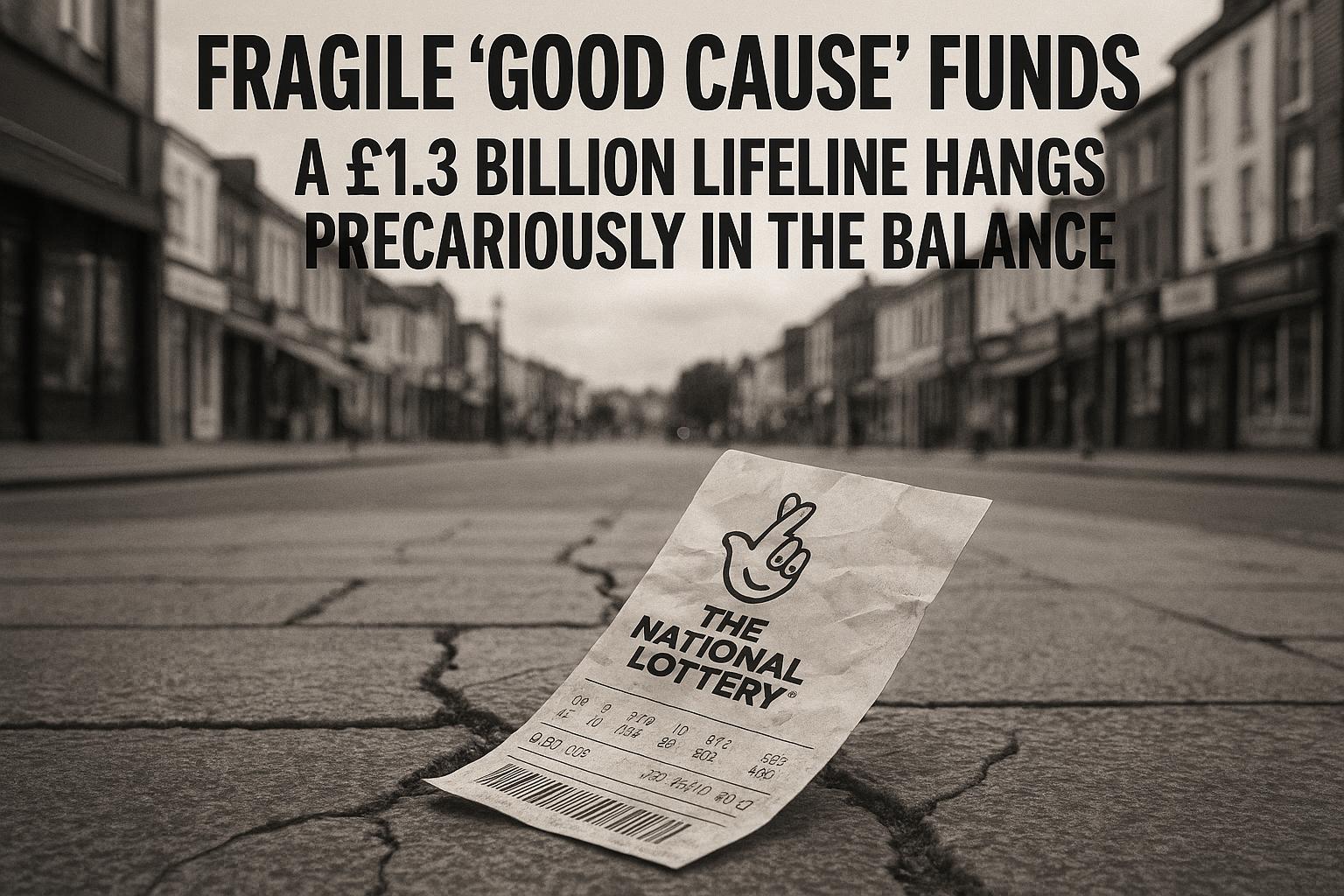Lotto good causes across the UK could face a substantial financial blow of up to £1.3 billion as a consequence of a High Court case involving former media mogul and ex-pornography publisher Richard Desmond. The case stems from Desmond's failed 2022 bid to become the national lottery operator, a contract ultimately awarded to Allwyn, a company owned by Czech billionaire Karel Komárek. Desmond, now based in Dubai, is pursuing damages from the government-run Gambling Commission, claiming the evaluation process of bids was flawed or biased, thereby denying him a fair chance to secure the licence.
If Desmond’s claim succeeds, the compensation would likely be drawn from funds allocated to lottery good causes, which support organisations such as Creative Scotland, Sport Scotland, and the National Lottery Community Fund. These funds are essential for numerous community projects and initiatives benefiting vulnerable groups. The Gambling Commission has confirmed that any damages awarded would be paid from the money normally reserved for these good causes, heightening concerns about the impact on community and charitable funding.
SNP Economy spokesman Dave Doogan voiced his apprehension, stating that "broken, Brexit Britain is in enough of a mess without good causes, vulnerable children and local communities bearing the brunt of what could be a colossal hit to funding." He further highlighted the timing’s severity, occurring just as the government prepares a budget expected to impose further hardships on families already under financial strain.
Desmond's controversial history adds another layer of intrigue to the case. Previously embroiled in tax avoidance controversies, he once owned publications such as Readers’ Wives and Horny Housewives in the 1980s, ran adult TV channels, and introduced Britain's first phone sex lines. His political donations have spanned multiple parties over time, including New Labour, the Conservatives, and UKIP under Nigel Farage. A notable previous incident involved Desmond avoiding a £40 million tax bill due to a decision by former Housing Secretary Robert Jenrick to approve a major housing development unlawfully—an approval that conveniently preceded increased community charges on developments.
The contract to operate the National Lottery for the next decade was awarded to Allwyn, with the Gambling Commission affirming the fairness and legality of the evaluation process. This follows a series of legal appeals, including one by International Game Technology PLC (IGT), which, like Desmond, challenged the awarding of the licence but ultimately discontinued its appeal in January 2024 after a High Court dismissal.
Beyond the current challenges, the National Lottery and its operators have faced scrutiny and penalties in recent years. For instance, Camelot, the previous licence holder, was fined several times between 2016 and 2022 for breaches ranging from inaccurate prize claims to consumer protection failures in its mobile app and governance issues. These penalties, some reaching millions of pounds, were paid from funds benefiting good causes, demonstrating an ongoing tension between regulatory enforcement costs and community funding.
The current situation with Desmond’s damages claim further underscores the vulnerability of lottery good causes to legal and operational challenges linked to the lottery’s governance. It also highlights significant concerns about the future stability of funding for various community projects that rely heavily on lottery revenues. The Gambling Commission’s costs related to managing the National Lottery have already surged, with a reported rise from £14.4 million to £28.8 million in one year, indicating funds are increasingly being diverted from community purposes.
As the High Court case proceeds, the impact on good causes across the UK remains a pressing issue, prompting calls for careful consideration of how such legal disputes affect vital community resources. The case also serves as a stark reminder of the complexities involved in managing a national institution like the lottery, balancing fair competition, regulatory oversight, and the safeguarding of public and charitable interests.
📌 Reference Map:
- Paragraph 1 – [1], [4]
- Paragraph 2 – [1]
- Paragraph 3 – [1]
- Paragraph 4 – [1]
- Paragraph 5 – [1]
- Paragraph 6 – [1], [2], [3]
- Paragraph 7 – [1], [4], [5], [6], [7]
- Paragraph 8 – [1]
Source: Noah Wire Services
